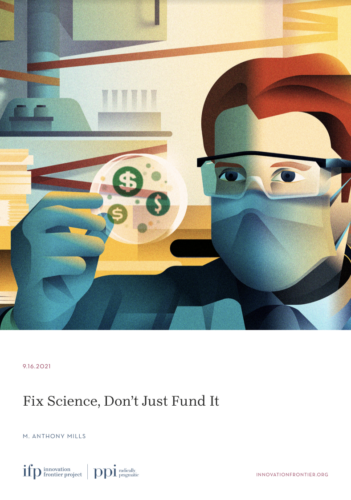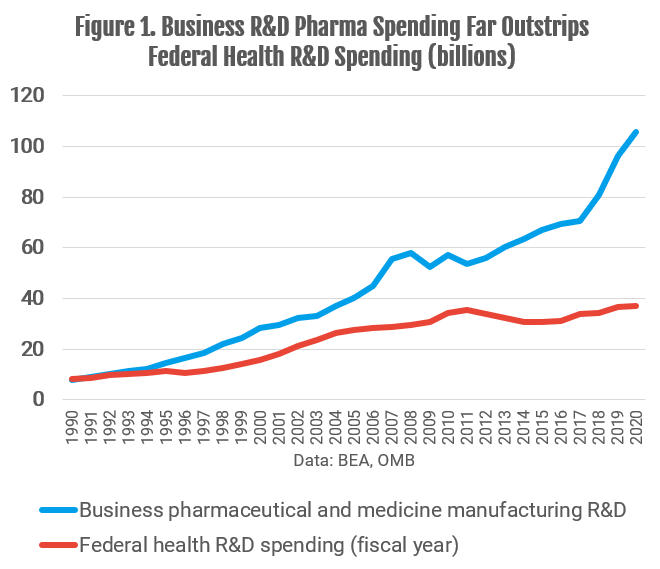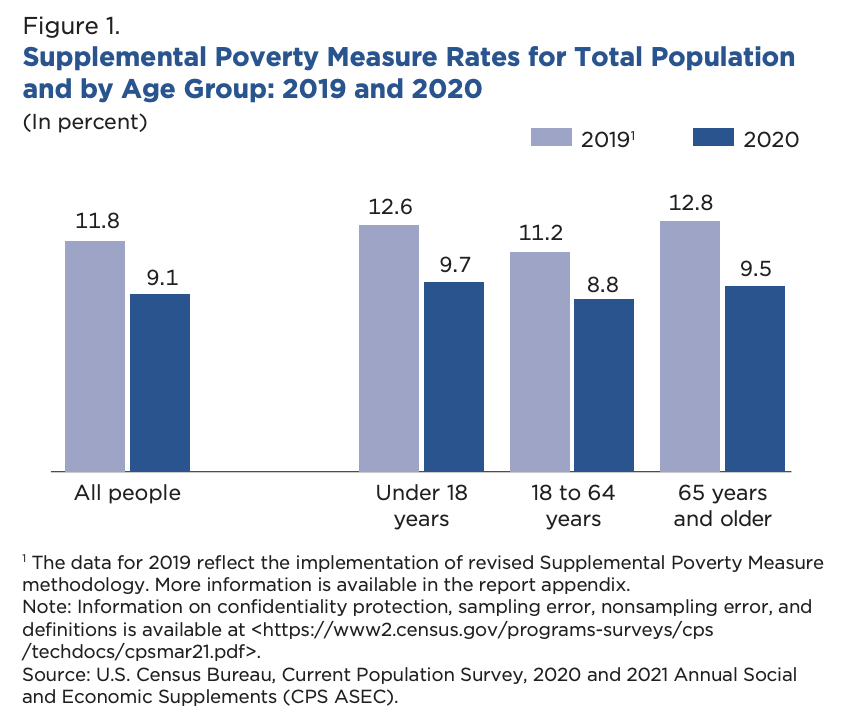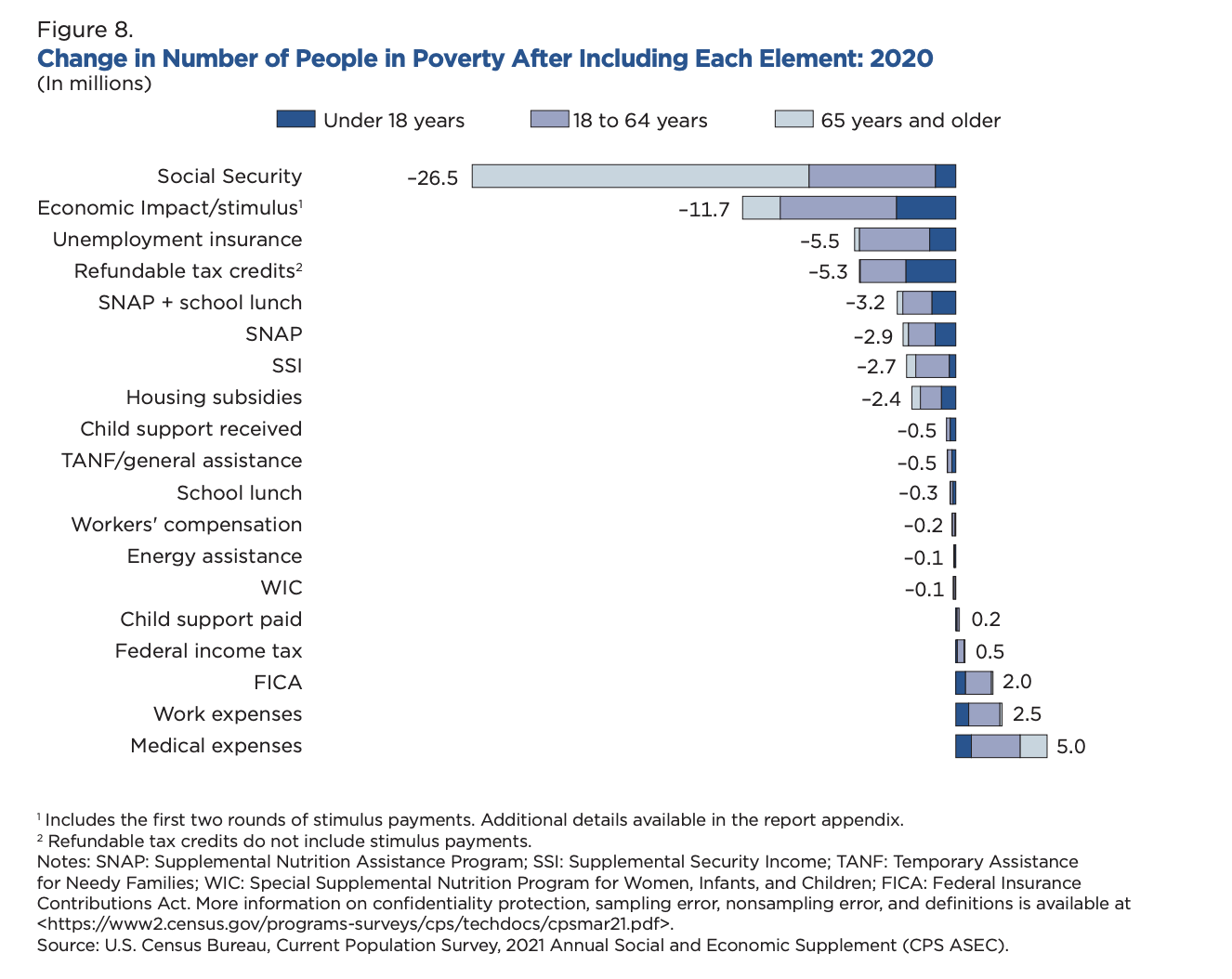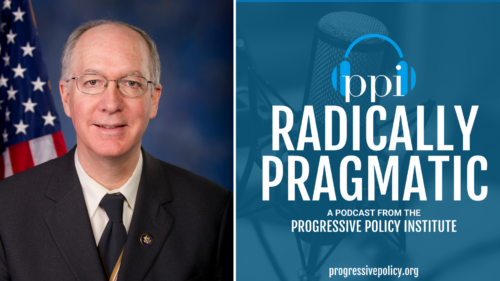The shape of inflation over the past year isn’t what you might expect. The table below pulls out the change in price for selected goods and services from July 2020 to July 2021, based on BEA personal consumption expenditure (PCE) data (we explain below why we use BEA rather than BLS data).
The overall price level for personal consumption expenditures rose by 4.2% over the past year. (that’s the bold line in the middle of the table). Well-reported contributors to inflation include car rentals (+74%) and purchases of used vehicles (+37%), both spectacularly large pandemic-related increases that no one expects to continue. Other price increases are clearly related to the disruptions of supply chains: Furniture (9%), televisions (10%), and major appliances (12%).
But then there are some price increases that are not so obviously related to the pandemic, and maybe sticky. The price of financial services is up 5%, driven in part by pension funds (12%) and financial service charges, fees, and commissions (+9%). The latter category includes portfolio management and investment advice services, where prices have risen 17% over the past year. That’s disturbing given the importance of the financial system.
Meanwhile some goods and services showed much slower than average price increases. For example, the price of beer only rose by 2.1% from July 2020 to July 2021, about half the overall inflation rate, and lower than the 2.6% increase in the price of food purchased for off-premises consumption.
The price of rental tenant-occupied nonfarm housing rose only 1.9%. That’s the lowest rental inflation rate in decades, with the exception of 2008-09 financial crisis and its aftermath.
Finally, there is the price of telecom and broadband services, which only rose 0.5% over the past year. To calculate this figure, we built a price index that combined wireless and wired telephone, cable and satellite television, internet access, and video and audio streaming, taking into account shifts in spending patterns as consumers adapt to new technological choices.
| Change in personal consumption expenditure prices (July 2020-July 2021) | |
| Spectator sports | -4.6% |
| Prescription drugs | -2.5% |
| Personal care products | -0.5% |
| Insurance | -0.2% |
| Recreational books | 0.1% |
| Household cleaning products | 0.3% |
| Telecom and broadband* | 0.5% |
| Legal services | 0.6% |
| Education services | 0.8% |
| Rental of tenant-occupied nonfarm housing | 1.9% |
| Beer | 2.1% |
| Nursing homes | 2.3% |
| Imputed rental of owner-occupied nonfarm housing | 2.4% |
| Pets and related products | 2.4% |
| Newspapers and periodicals | 2.5% |
| Educational books | 2.6% |
| Food purchased for off-premises consumption | 2.6% |
| Hospitals | 2.9% |
| Physician services | 3.4% |
| Accounting and other business services | 3.7% |
| Veterinary and other services for pets | 4.1% |
| Personal consumption expenditures | 4.2% |
| Hairdressing salons and personal grooming establishments | 4.8% |
| Financial services | 5.0% |
| Social assistance | 5.0% |
| Meats and poultry | 5.4% |
| Repair of household appliances | 6.1% |
| Fresh milk | 6.2% |
| Museums and libraries | 6.2% |
| Meals at limited service eating places | 6.6% |
| Electricity and gas | 7.0% |
| Nonpostal delivery services | 7.7% |
| Furniture | 8.8% |
| Financial service charges, fees, and commissions | 9.2% |
| Televisions | 9.9% |
| Pension funds | 12.2% |
| Major household appliances | 12.3% |
| Moving, storage, and freight services | 13.3% |
| Portfolio management and investment advice services | 16.6% |
| Air transportation | 19.7% |
| Net purchases of used motor vehicles | 36.5% |
| Motor vehicle rental | 73.5% |
| *Includes wireless and wired telephone; cable and satellite television; internet access; video and audio streaming | |
| Data: BEA | |
Note: The BLS publishes the Consumer Price Index (CPI) for various goods and services, while the BEA publishes a set of price indices connected with Personal Consumption Expenditure (PCE) data. Both are useful, but the Federal Reserve tends to give somewhat more weight to the PCE inflation rate because it accounts better for changes in spending patterns. Similarly, using the PCE gives us an opportunity to construct a price index for the telecom and broadband sector that has a chance of capturing some of the rapid changes in the sector.



